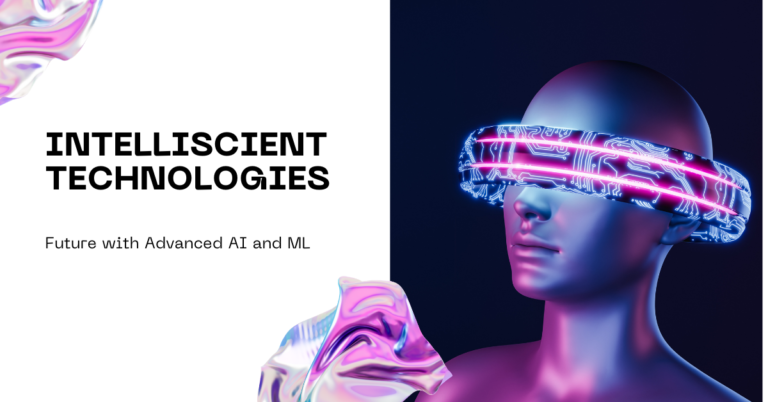In the fast-evolving landscape of technology, a new term has emerged that encapsulates the pinnacle of digital innovation: Intelliscient Technologies. Coined from the fusion of “intelligent” and “omniscient,” this term represents a transformative leap in the capabilities of Artificial Intelligence (AI) and Machine Learning (ML). It signifies a realm where systems exhibit unparalleled intelligence and an almost omniscient understanding of data, paving the way for a future characterized by efficiency, responsiveness, and innovation.
The Evolution of Intelliscient Technologies
The concept of intelligent systems has roots dating back to the early days of computing. Visionaries like Alan Turing laid the groundwork for computational theories that would eventually culminate in the development of AI and ML. Over time, advancements in computing power, data analytics, and algorithmic sophistication have propelled intelligent technologies into the forefront of digital progress.
At the core of Intelliscient Technologies lies their ability to assimilate vast amounts of data from diverse sources, process it comprehensively, derive meaningful insights, and make informed predictions. This cognitive prowess is facilitated by sophisticated machine learning algorithms, often bolstered by neural networks that mimic the intricate neural pathways of the human brain. The result is a system capable of dynamic learning, problem-solving, and decision-making—a paradigm shift from static, rule-based programming.
Applications and Implications Across Industries
The impact of Intelliscient Technologies transcends industry boundaries, permeating sectors such as healthcare, finance, transportation, agriculture, and beyond.
- Healthcare: In the medical domain, Intelliscient Technologies are revolutionizing patient care through predictive analytics, personalized treatment plans, and disease outbreak forecasting. These systems analyze vast healthcare datasets to identify patterns, diagnose ailments, and recommend optimal interventions, ultimately improving patient outcomes and healthcare efficiency.
- Finance: Within financial institutions, Intelliscient Technologies are deployed for risk assessment, fraud detection, algorithmic trading, and portfolio optimization. These systems leverage real-time data streams, historical trends, and predictive modeling to mitigate risks, enhance decision-making accuracy, and drive financial performance.
- Transportation: Intelligent transportation systems powered by Intelliscient Technologies optimize traffic flow, reduce congestion, and enhance safety on roads. From smart traffic signals to autonomous vehicles, these technologies leverage data analytics, sensor networks, and predictive algorithms to create seamless, efficient mobility solutions.
- Agriculture: In agriculture, Intelliscient Technologies enable precision farming practices that optimize crop yields, conserve resources, and minimize environmental impact. Through data-driven insights, farmers can make informed decisions regarding planting schedules, irrigation management, pest control, and crop health monitoring, leading to sustainable agricultural practices.
Challenges and Considerations
While Intelliscient Technologies offer transformative potential, they are not devoid of challenges and considerations:
- Data Privacy and Security: The proliferation of data-driven technologies raises concerns about data privacy, confidentiality, and security. Safeguarding sensitive information from unauthorized access, breaches, and cyber threats is paramount to maintaining trust and compliance.
- Ethical Use of AI: Ethical considerations surrounding AI governance, bias mitigation, transparency, and accountability are crucial. As intelligent systems make increasingly autonomous decisions, ensuring fairness, equity, and ethical conduct remains a pressing concern.
- Human-Machine Collaboration: Balancing human oversight with automated decision-making poses challenges in integrating Intelliscient Technologies seamlessly into workflows. Collaborative frameworks that leverage human expertise while harnessing AI capabilities are essential for optimal outcomes.
The Vision of Thought Leaders
Prominent figures in the tech industry, including Elon Musk, Sundar Pichai, and Ginni Rometty, envision a future where Intelliscient Technologies coexist harmoniously with human society. They advocate for responsible AI development, robust regulatory frameworks, and continuous dialogue to address ethical, societal, and economic implications.
Case Studies and Success Stories
Inspiring case studies abound, showcasing the transformative impact of Intelliscient Technologies:
- Intelligent Cities: Cities worldwide leverage Intelliscient Technologies for smart infrastructure management, energy optimization, waste reduction, and public safety enhancements. These initiatives result in sustainable urban development, improved resource utilization, and enhanced quality of life for residents.
- Precision Agriculture: Farms deploy Intelliscient Technologies for precision agriculture, leveraging IoT sensors, satellite imagery, and AI-driven analytics to monitor soil health, optimize irrigation, manage crop diseases, and maximize yields. These innovations promote sustainable farming practices, conserve resources, and bolster food security.
Conclusion: Navigating the Intelliscient Future
In conclusion, Intelliscient Technologies represent a paradigm shift in digital transformation, unlocking unprecedented possibilities across sectors. As we navigate this Intelliscient future, it is imperative to address challenges collaboratively, foster ethical AI practices, and harness these technologies responsibly for societal benefit. By embracing innovation, fostering human-machine collaboration, and prioritizing ethical considerations, we can chart a course towards a future where Intelliscient Technologie’s empower us to tackle complex challenges, drive sustainable growth, and shape a more intelligent, inclusive world.

